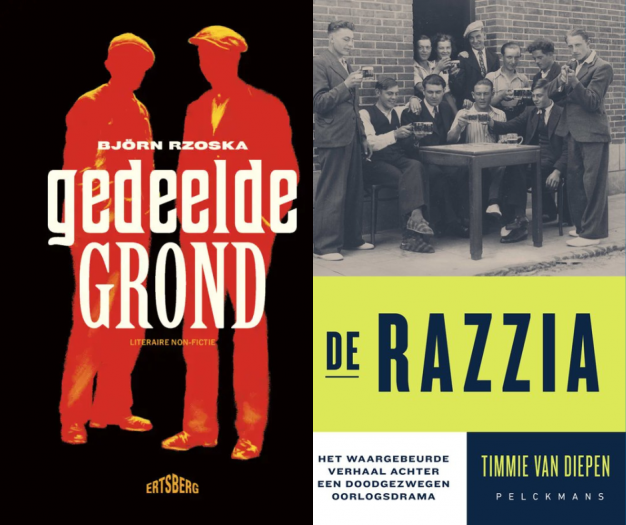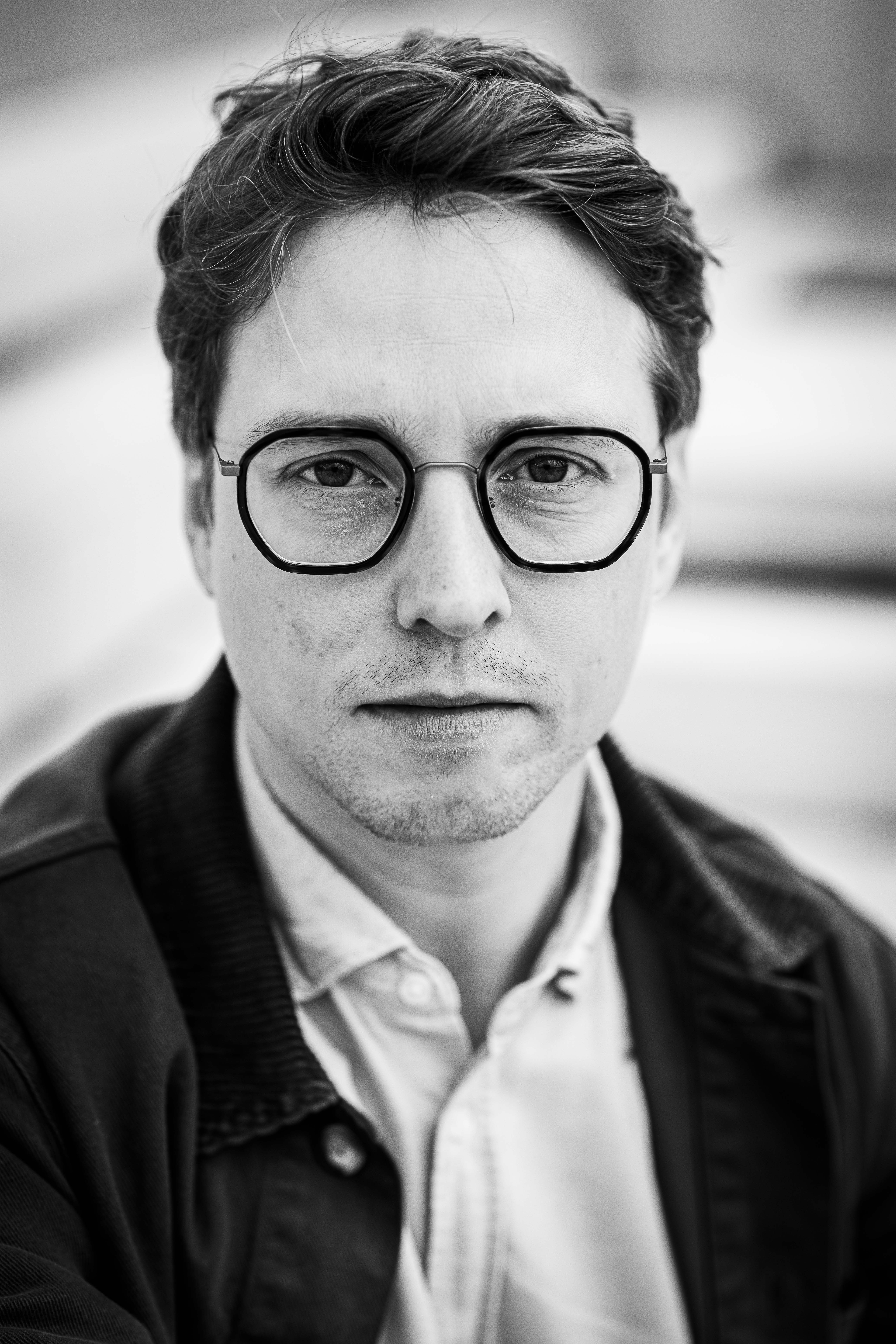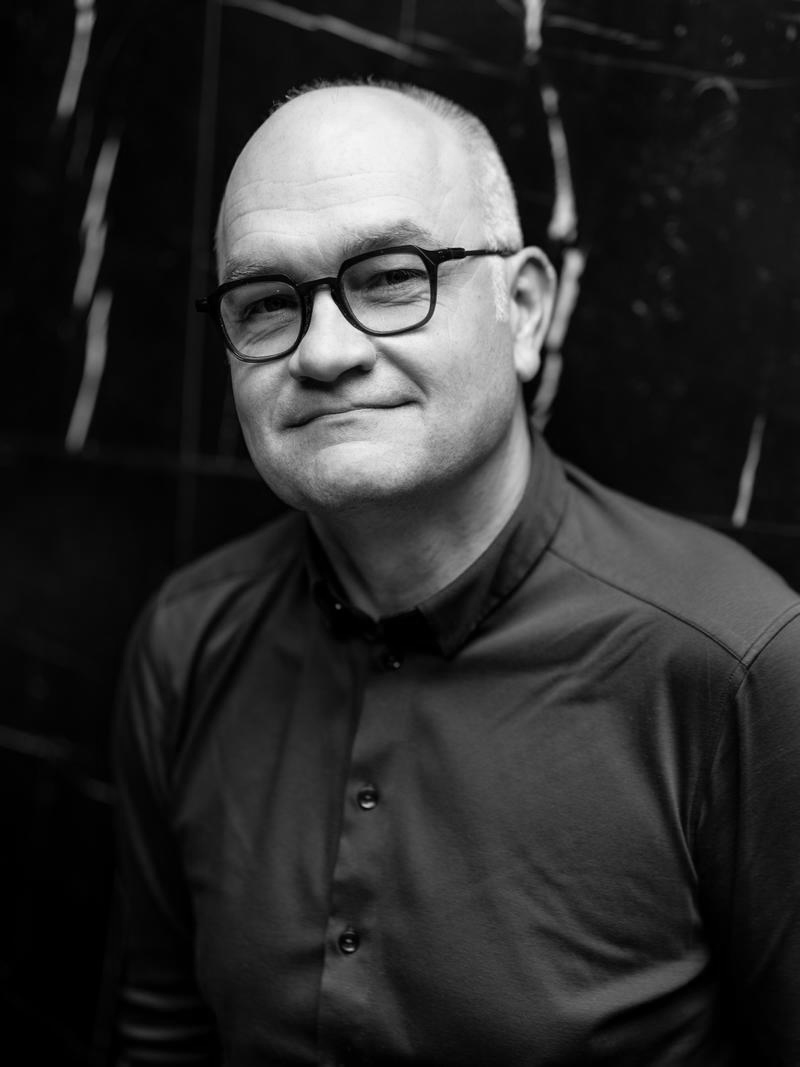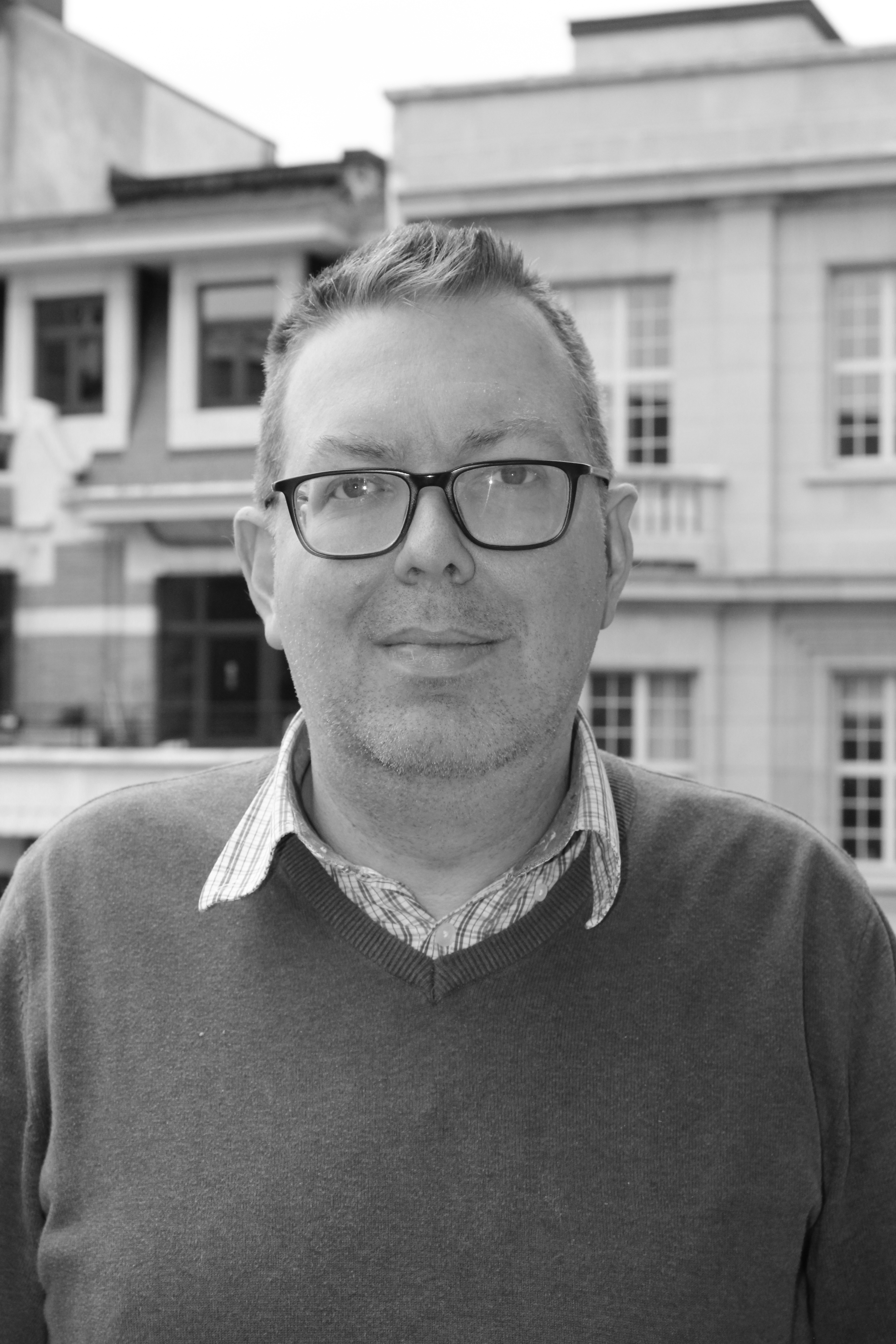Confronting family stories with historical reality
CegeSoma Public History Meeting (2025-7)

Conference-debate (in Dutch) with guests
Björn Rzoska and Timmie Van Diepen.
An interview conducted by Dimitri Roden.
On Wednesday 12 November at 2:00 p.m., CegeSoma will host a Public History Meeting with two authors who will unflinchingly examine family memory and the history of World War II in a personal quest for understanding and transmission.
In Gedeelde grond (Common Ground), historian Björn Rzoska traces the intersecting paths of his two grandfathers: one a Flemish volunteer who fought on the Eastern Front, the other a Polish soldier. Drawing on previously unpublished archives consulted in Belgium and abroad, he compares family stories with historical reality and reveals a complex, intimate, and collective memory. His journey took him from Poland to Normandy, and then to Waasmunster, where the paths of the two men unexpectedly converged.
In De razzia. Het waargebeurde verhaal achter een doodgezwegen oorlogsdrama (The Razzia: The True Story Behind a Hushed-up War Drama), historian and journalist Timmie van Diepen investigates a tragedy that has long been silenced: the Molenbeersel roundup (razzia) in August 1944. Five members of his family lost their lives there, following a reprisal operation long described as a ‘mistake’. After ten years of research in the archives and interviews with the last remaining witnesses and their descendants, he reconstructs the facts with precision and questions how this war violence has been passed on — or concealed — within families and collective memory more broadly.
Although these two works differ significantly in their approaches, they demonstrate a common desire to find meaning in silences, confront family stories with historical realities, and pass on a resonant memory. During the presentation, authors will be invited to reflect on several questions. For instance, how do we navigate between personal memory and historical truth? What dilemmas arise when we question family stories? How do these personal stories shed light on the mechanisms of war, collaboration, and resistance? Why were certain tragedies silenced for generations? And how can we transmit these stories to future generations without freezing them in time or betraying them?
The two authors will be interviewed by Dimitri Roden before the floor is opened to the public. This event is part of the CegeSoma Public History Meetings series and has been organised in collaboration with the non-profit organisation ‘Friends of CegeSoma’.

Timmie Van Diepen studied history at KU Leuven and journalism at VUB.
He is a political journalist for Het Laatste Nieuws, after writing for Het Belang van Limburg for 15 years.

Björn Rzoska studied history at Ghent University, where he carried out research on the Lokeren Internment Centre after the Second World War (1944–1947). After working in the cultural heritage sector with FARO, he turned to politics and served as a member of the Flemish Parliament for almost 12 years. He is currently chief librarian for the University of Antwerp Library.

Dimitri Roden holds a PhD in history from UGent and a PhD in social and military sciences from the Royal Military Academy. He worked as a historian at the Breendonk National Memorial, was a research assistant at the Royal Museum of the Armed Forces/WHI, and conducted postdoctoral research at the Military Academy on collaboration, repression, and military justice. He is currently in charge of the FED-Twin People@War project at CegeSoma.